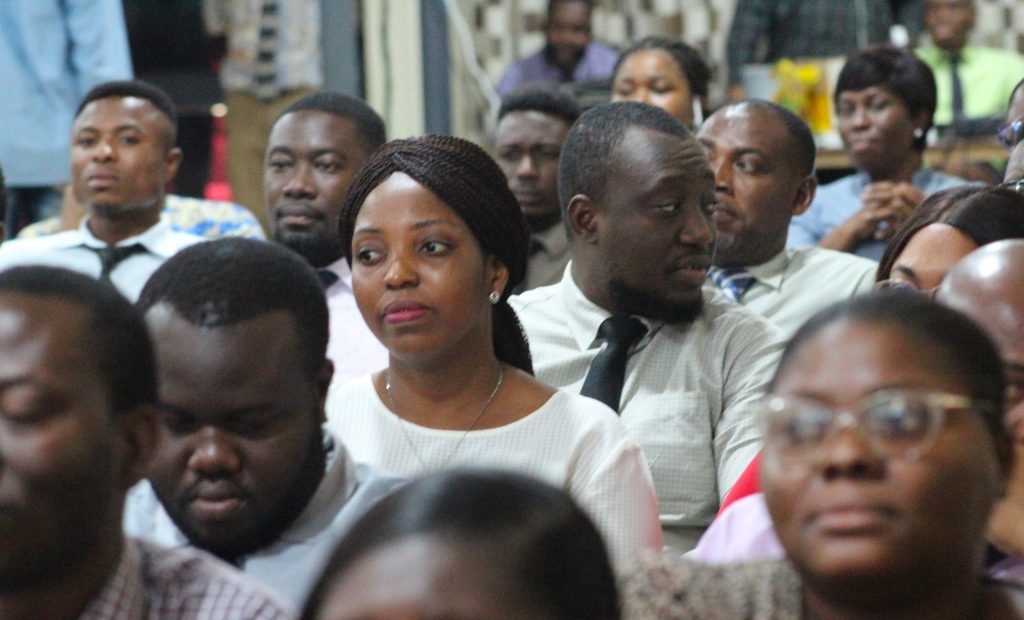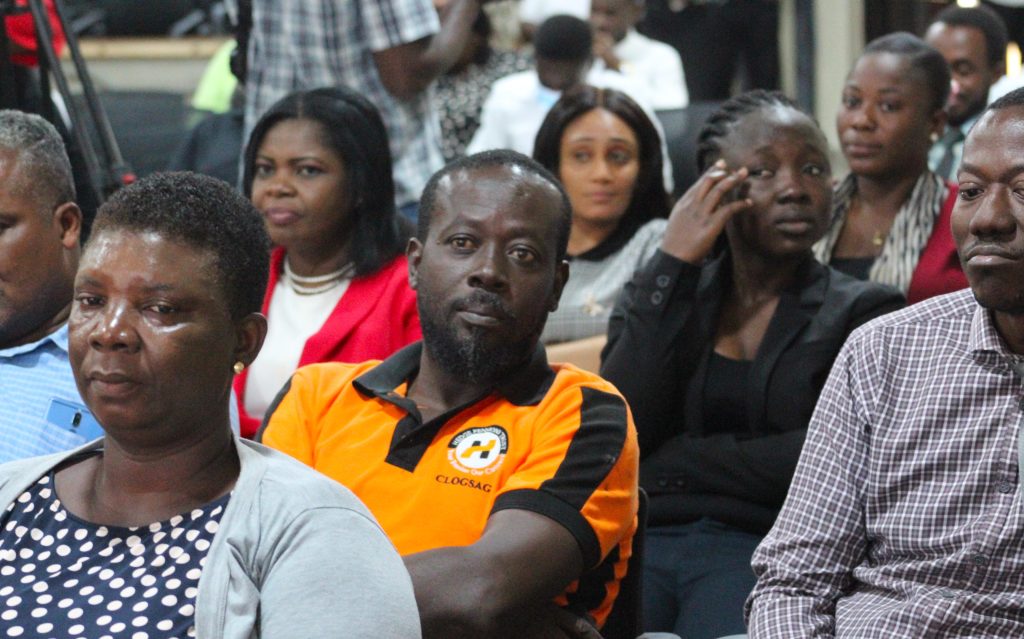By James Amoh Junior
Accra, Sept. 29, GNA – The Civil and Local Government Staff Association, Ghana (CLOGSAG), has decried the “over politicisation” of Ghana’s Civil Service architecture.
The practice, CLOGSAG said, had “indirectly affected the mandate of Civil Service organisations, stifled development, affected civil service reforms and injured Ghana’s fledgling democracy.”
The Association said although the strengthening of existing laws could nip the phenomenon in the bud, a review of the President’s power of appointment was necessary to minimise the politicisation of the country’s bureaucratic setup.
Mr Isaac Bampoe-Addo, Executive Secretary, CLOGSAG, speaking at the 5th Nathan Annang Quao Lecture on the theme: “Abuse of Political Power in the Civil Service: The Bane of National Development,” said, the Civil Service was pivotal in national development as it served as the wheel of government machinery.
The lecture was in honour of Nathan Annang Quao, a celebrated Civil Servant who worked under five successive governments exhibiting key values and principles of the Civil Service.
The Executive Secretary of CLOGSAG said the difficulty that the Service faced in recent times was how to navigate between being professional and implementing programmes from various political regimes to enhance the welfare of the polity without necessarily eliciting political tags.
”In our quest to be professional in our work and stick to the principles underpinning the Service, we end up courting disaffection from the political divide,” he said.

He said compliance with the policies of a particular government or politician also created a delicate situation for most civil servants, particularly the senior ones as work ethics were misconstrued as allegiance to a particular political divide.
Ironically, Mr Bampoe-Addo said civil servants were expected to show unfettered allegiance to the government of the day and that the existing bureaucracy within the civil service structure was also perceived as deliberate delay tactics and frowned upon by politicians.
“Politicians have not helped matters in our governance process in adhering and complying with the tenets of the Civil Service principles,” he said, citing instances of intrusion of politicians in civil service activities, including “tinkering with institutional arrangements in the Civil and Local Government Service without recourse to their respective governing councils.
He bemoaned the alleged creation of “parallel institutions staffed with party apparatchiks” in the name of “Special Assistance or Aides” to rival the Service in the implementation of government policies and programmes.
According to CLOGSAG, “recruiting of party apparatchiks as consultants to perform routine civil service functions and paying them higher unearned salaries balloons the Civil Service wage bill as reported in the 2020 Auditor-General’s report for MDAs and MMDAs.”
It said, a key function taken over by political appointees was policy initiation and formulation in most Ministries leading to weak policy coordination and management.
The situation, Mr Bampoe-Addo stated, had compromised the quality of services provided by most Civil Service organisations as they were undertaken without the required institutional guidance, expertise and experience.
The Association further claimed that political appointments of Chief Directors and Heads of Departments to Civil and Local Government Services contravened a Supreme Court ruling and that it was a clear instance of abuse of political power.
The CLOGSAG Executive Secretary noted that central government projects had over the years suffered neglect as a result of inadequate provision of resources at those levels.
He said resources meant for service provision in various Ministries, Departments and Agencies (MDAs) and Metropolitan, Municipal, and District Assemblies (MMDAs) were channelled into different projects leading to limited funding of Civil Service activities and function due to irregular release of funds.
The Association, therefore, said no government could achieve its objectives without a well-motivated, properly structured and well-resourced administrative machinery without a relook at the critical role of the services to ensure national development.

To achieve that, Mr Bampoe-Addo recommended an insulation of the civil services from “direct political interference and machination” while appointments, promotions and career management remained neutral and based solely on merits.
CLOGSAG, thus, called for a review of the laws on Civil and Local Government Service Acts particularly the composition of the Councils.
GNA